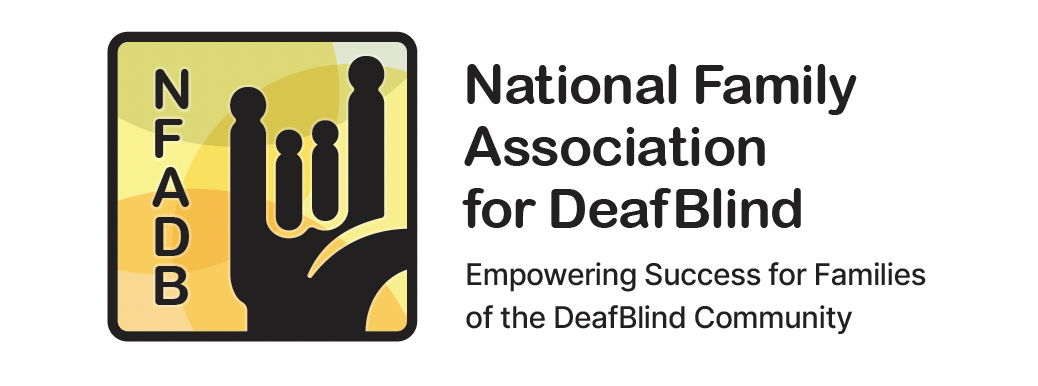- Welcome
- What We Do
- Provide Information and Resources
- Adult Life Resources
ADULT LIFE RESOURCES |
|
ResourceS
Guides
NFADB worked with the CHARGE Syndrome Foundation and the Perkins School for the Blind Research Librarian to develop the following two resource guides.
Adults with Deafblindness Resource Guide – Overview
Adults with deafblindness may qualify or receive services and support from a wide range of agencies and organizations. This guide provides tips for getting started, and information about organizations, national and state programs, and local resources. Because many services are provided on a state level and each state has its own terminology and way of organizing services, the guide includes information on how to find what you need in your own state.
Adults with Deafblindness Resource Guide – Topics
This guide focuses on specific topics many people who are deafblind and their families have questions about. They include:
-
Daily life (e.g., housing, mental health)
-
Activities, education and employment
-
Long-term planning
-
Family and friends
Support Service Providers
A Support Service Provider, commonly referred to as an SSP, is a specially trained individual who provides access to the community for people who are DeafBlind. This allows the person who is DeafBlind to make decisions for themselves based on the visual, environmental and social information provided by the SSP. Source: PA Office for the Deaf & Hard of Hearing
NFADB Position Paper: Support Service Provider/CoNavigator
Support Service Provider White Paper
Active Support Service Provider (SSP) and CoNavigator (CN) Programs (from Helen Keller National Center)
Family Experiences
What Touch Base Means to Families – An article about two families that started a day habilitation center in Texas
Transition and Adult Life Success Stories – Stories about self-determination, access, and family engagement for transition-age students and adults who are deafblind
Meet Alex Black – A story about the transition experiences of Alex, who lived a full and happy life for 22 years
Connect with Other Families
Here are some opportunities to discuss your experiences with other families.
Adult Life Facebook Group
NFADB’s Adult Life Facebook Group is a private group for families to share dreams, plans, and strategies for a safe, happy, inclusive life for their adult family members with deafblindness.
Adult Life Support Group
The Adult Life Support Group is part of the Family-to-Family Communities Project (F2FC). F2FC brings families of individuals who are deafblind together to connect, share information and resources, and offer support to one another. Registration opens during late summer and meetings run through the subsequent school year.
For more information, contact Patti McGowan (patti@nfadb.org).
NFADB Affiliates
Many states have a group for families with an individual who is deafblind. These groups typically provide information and support to families within that state. Several of these family groups are also NFADB Affiliates.
Check with your state deafblind project to find out if your state has a parent group.
NFADB’s Commitment to Families of Adult Children
In 2016, at an NFADB Symposium in Austin, Texas, families of adult children who are deafblind shared their needs for information, resources, and support. They spoke about the challenges they faced as their children left an educational system based on entitlement and entered the eligibility-based adult system. Many found the journey overwhelming. Six months later, NFADB added the following long-term goal to its work scope: NFADB will be seen as a national resource to families regarding knowledge and skills about adult life issues.
In addition to this web page, activities to support this goal include:
-
Creation of an Adult Life Committee
-
Facilitation of an Adult Life Support Group as part of the Family-to-Family Communities project
-
Creation of a private Facebook group
-
Participation in the “Families as Partners” group, which works to find ways to better support families (other members include representatives from the CHARGE Syndrome Foundation, the Helen Keller National Center, the National Center on DeafBlindness, and the Usher Syndrome Coalition)
Mission Statement: The mission of the NFADB Adult Life Committee is to share information, resources, and activities that help individuals who are deafblind and their families dream, plan, strategize, and break down barriers, in order to attain a safe, happy, inclusive life for the family member who is deafblind.
|

